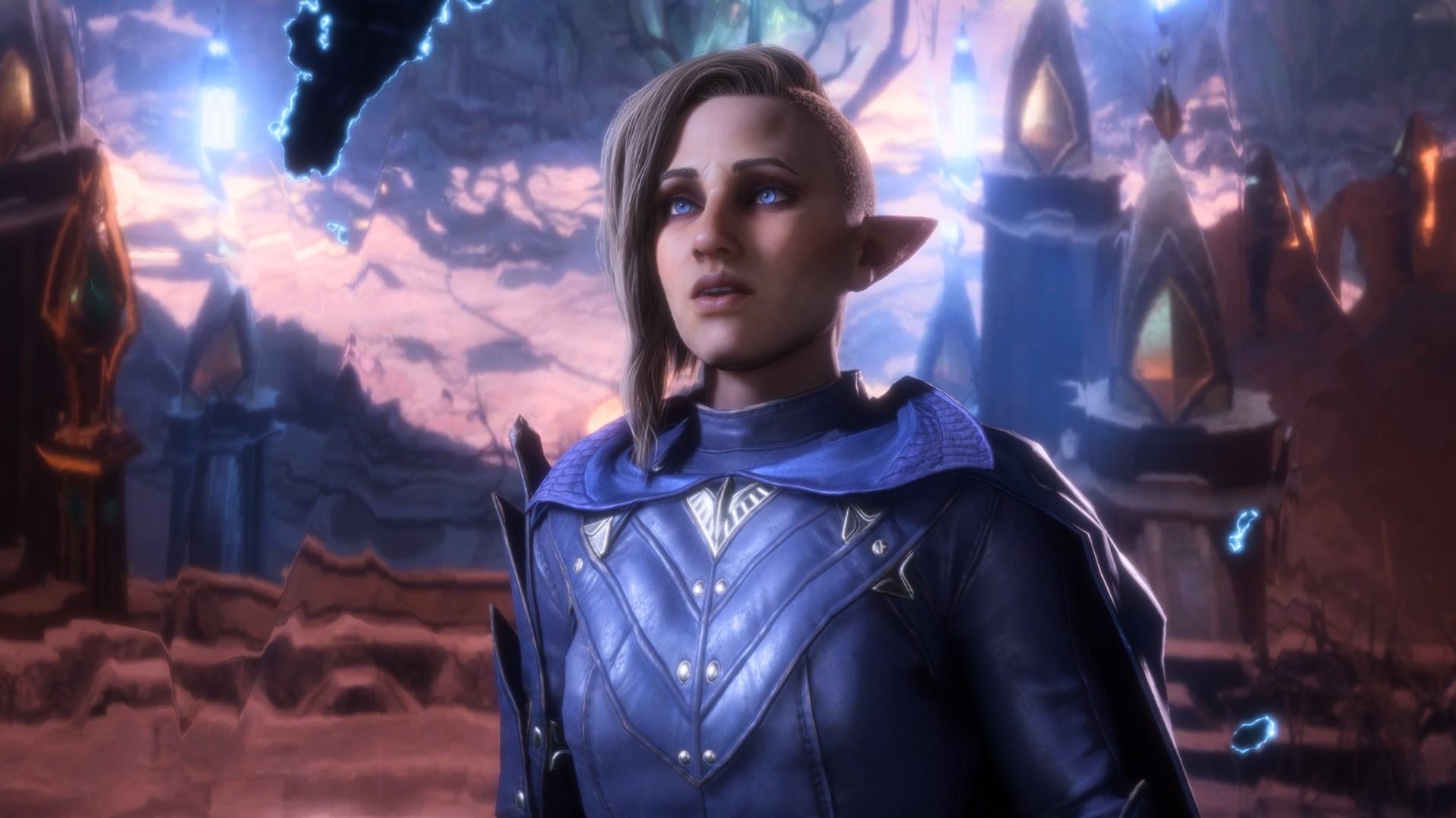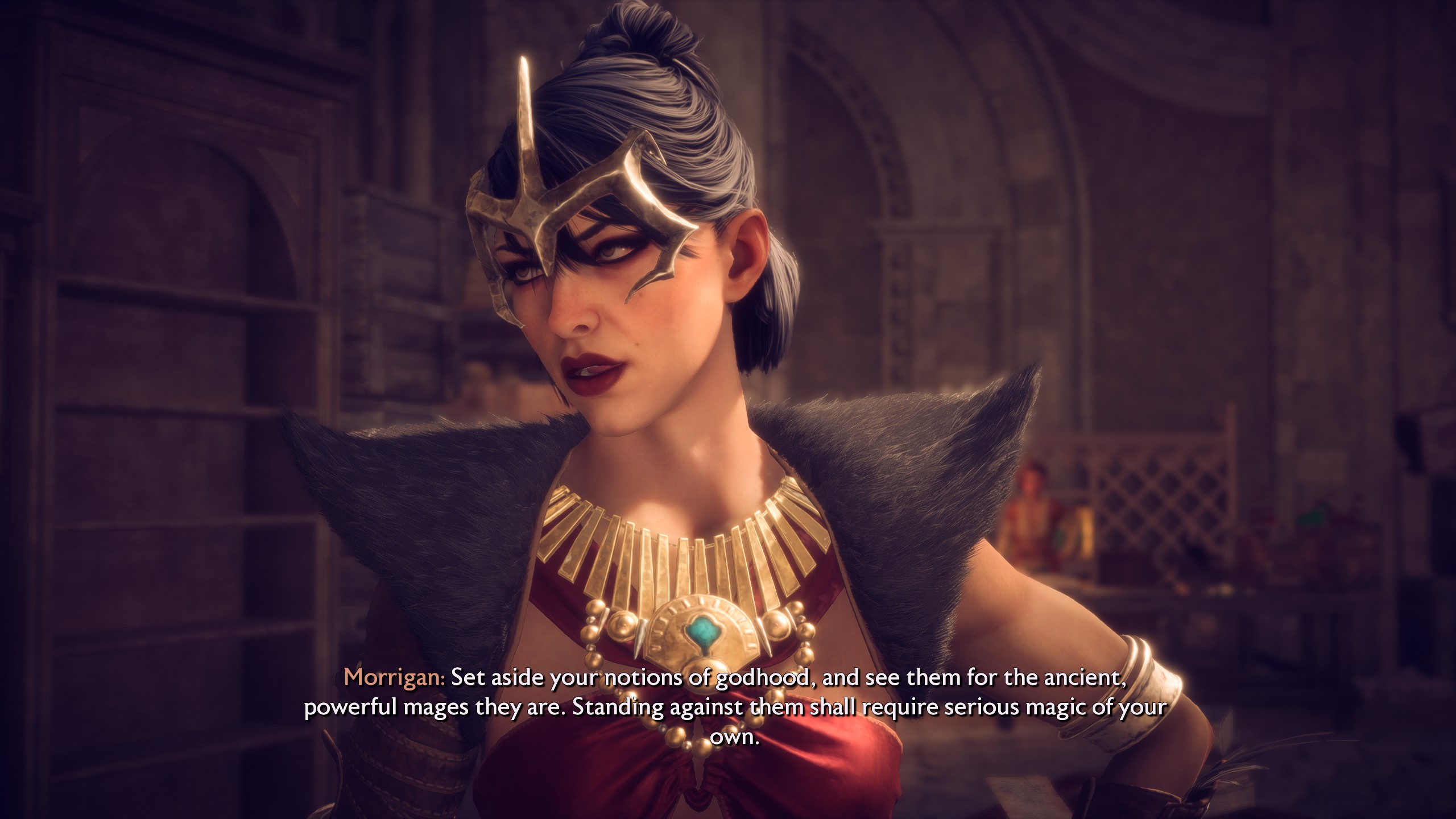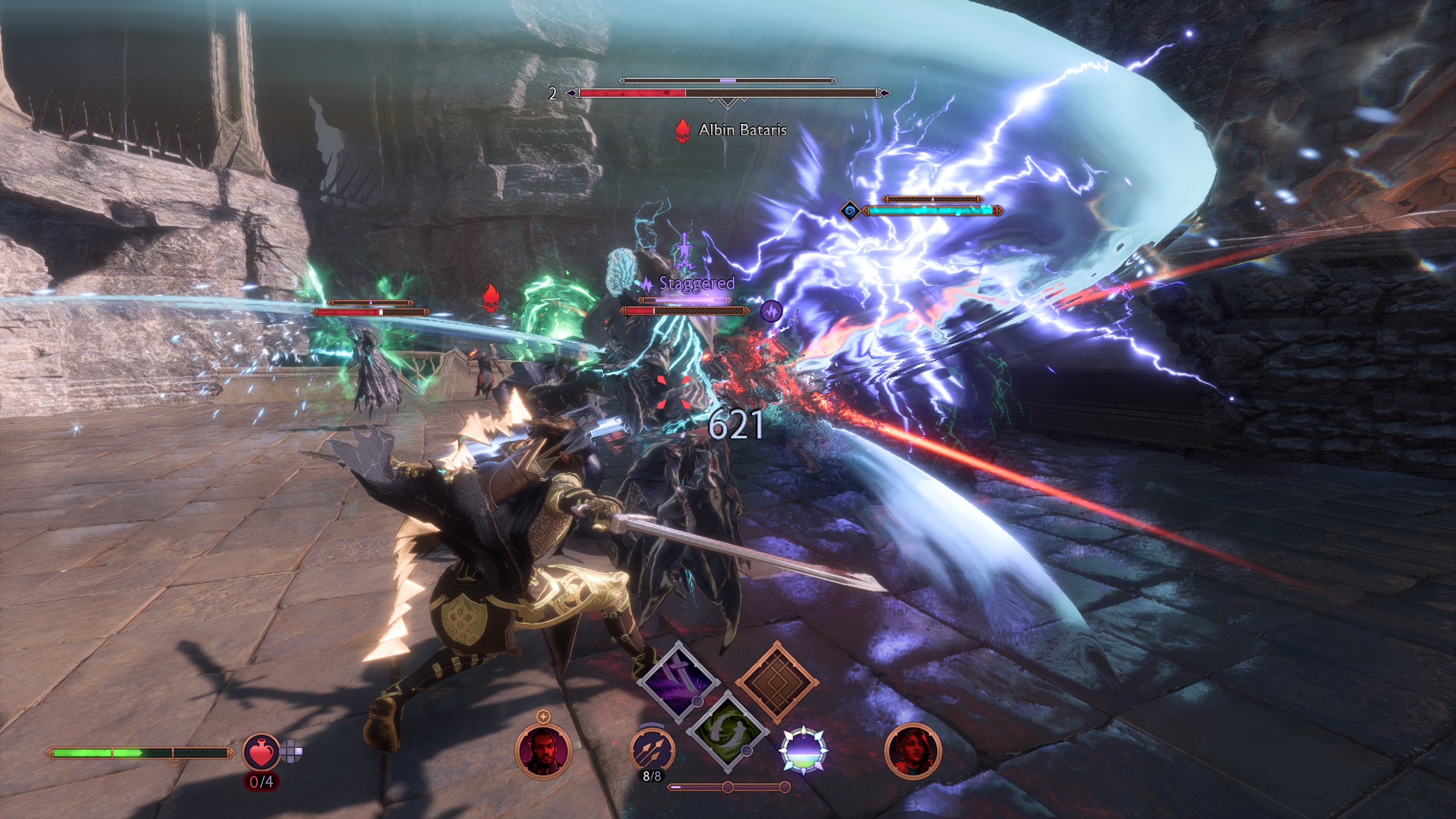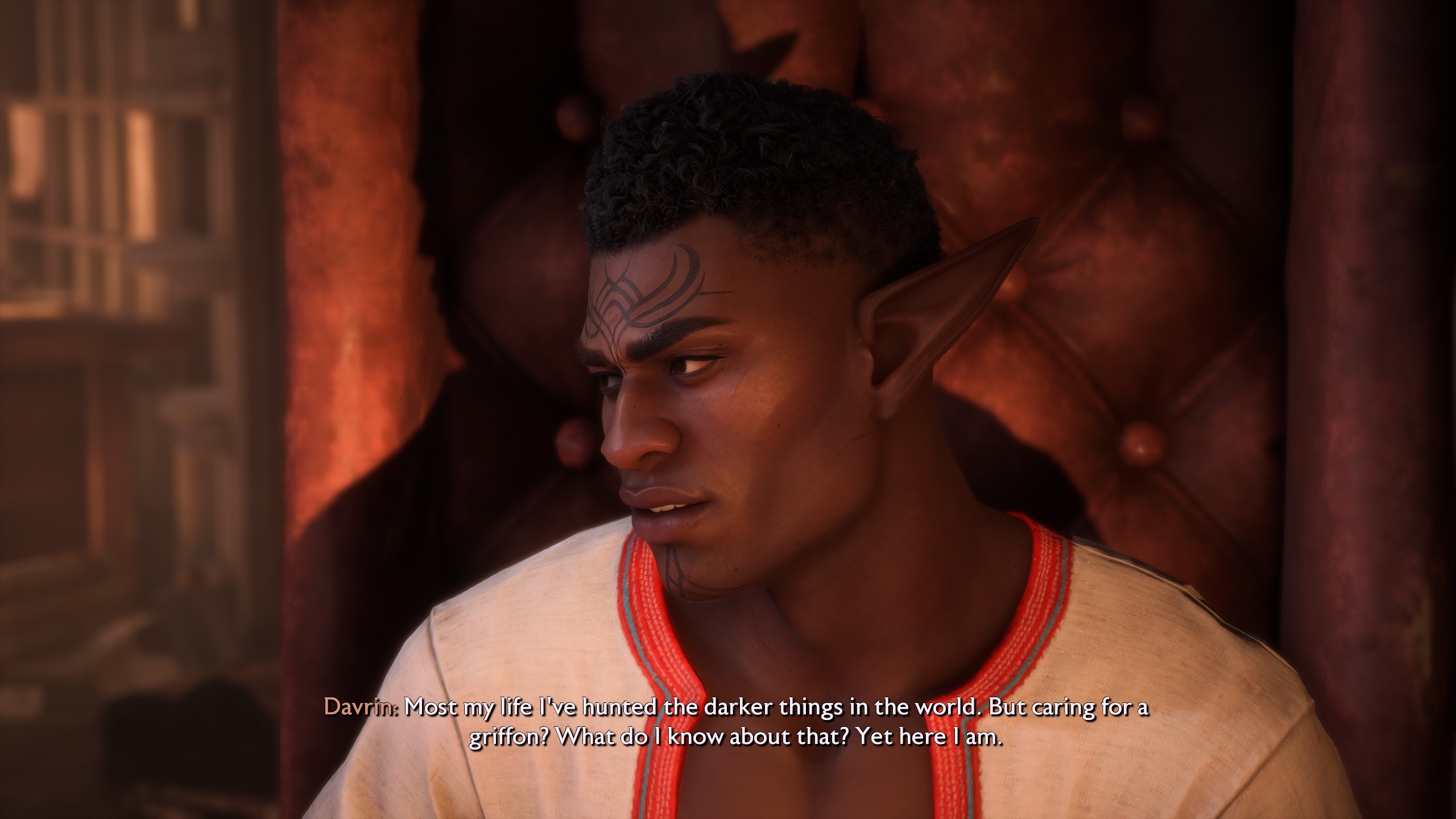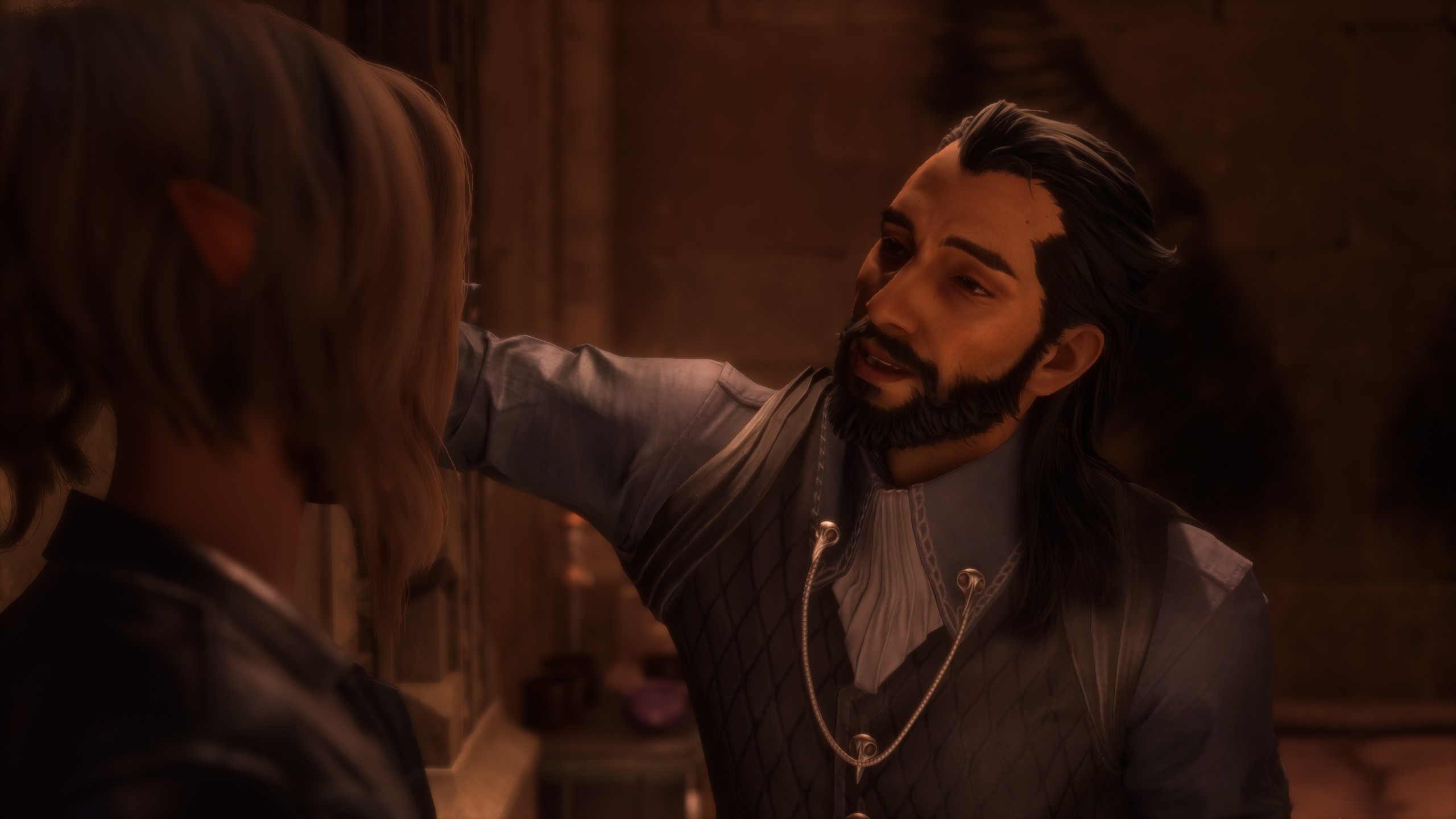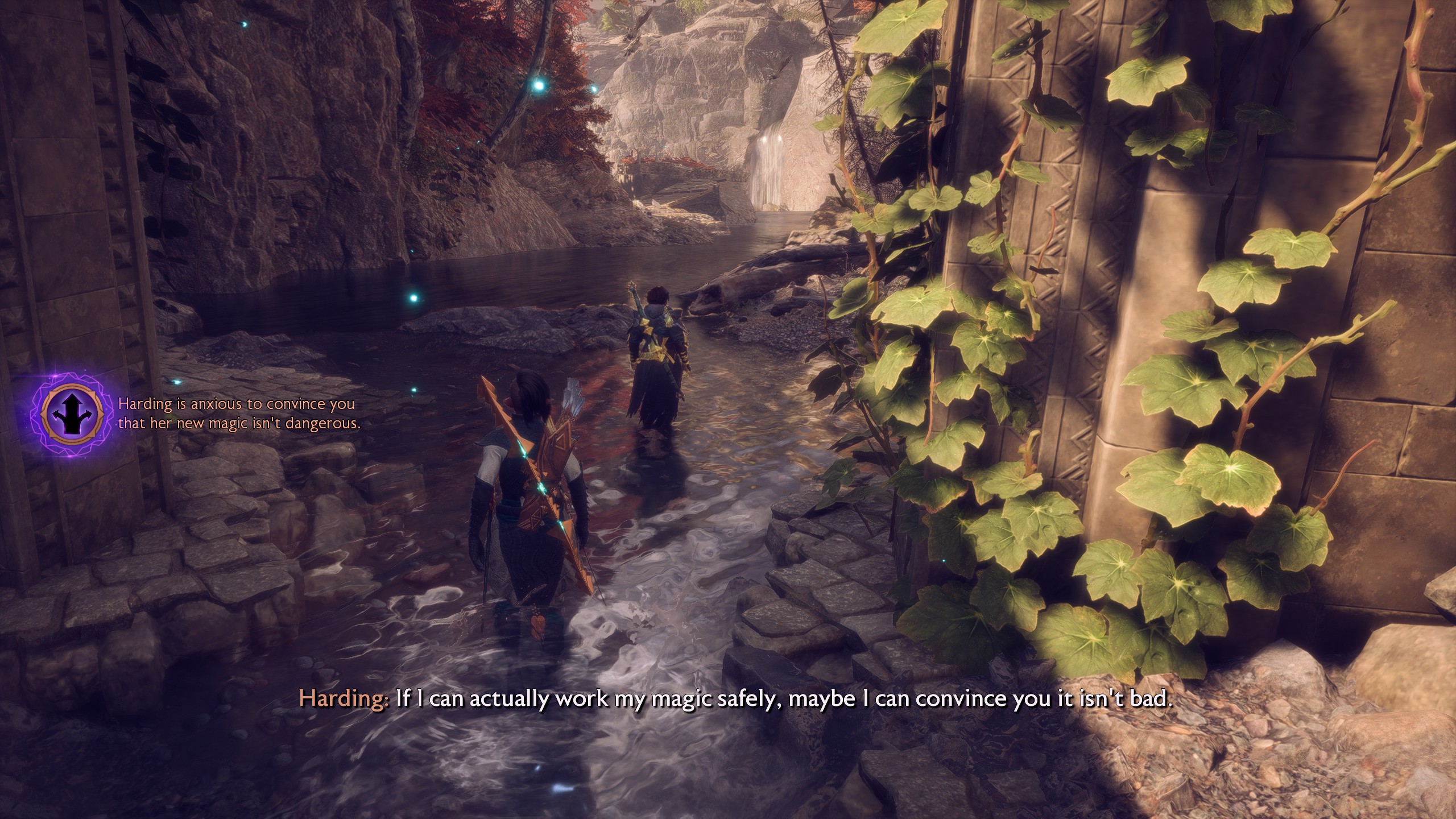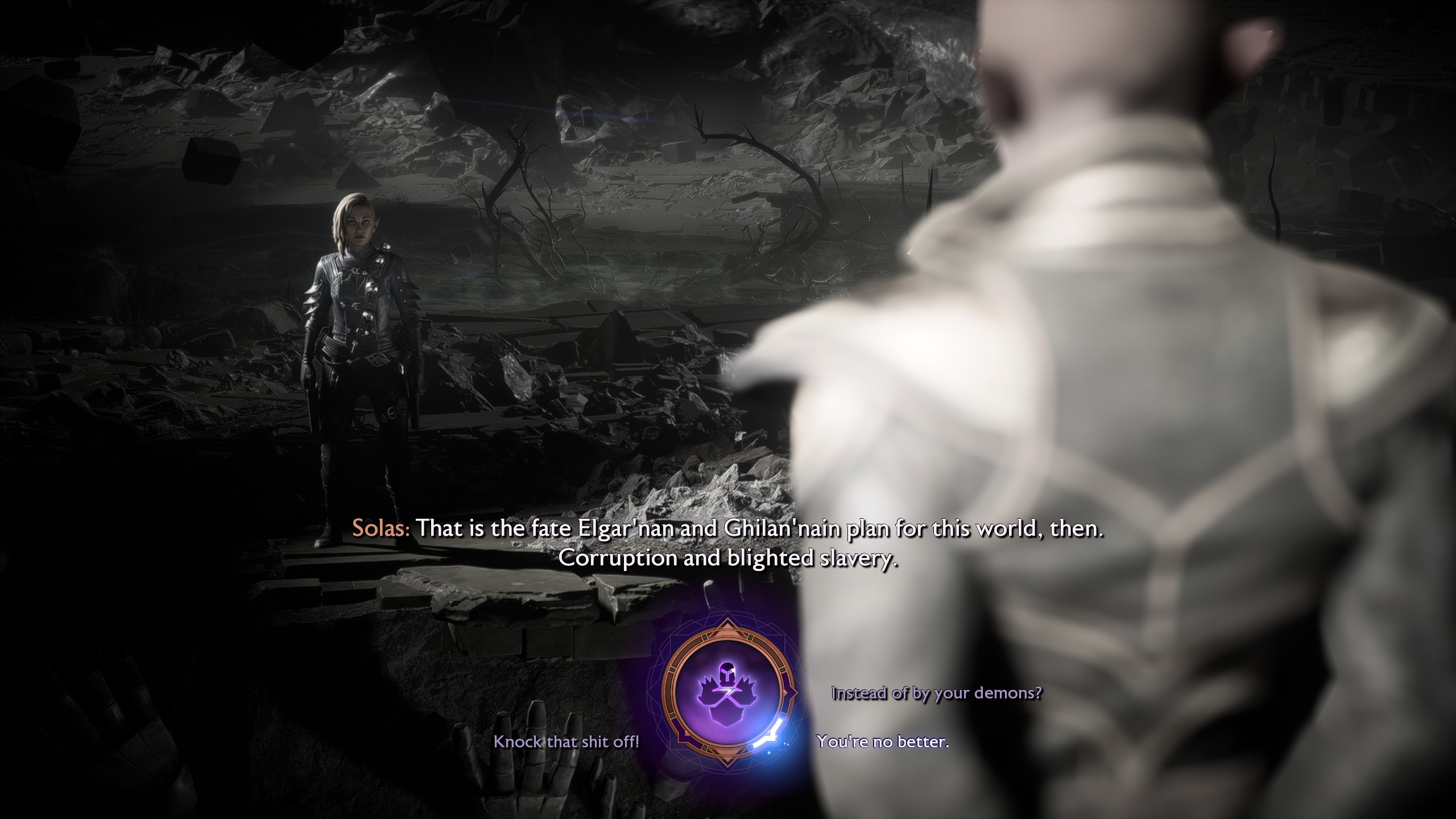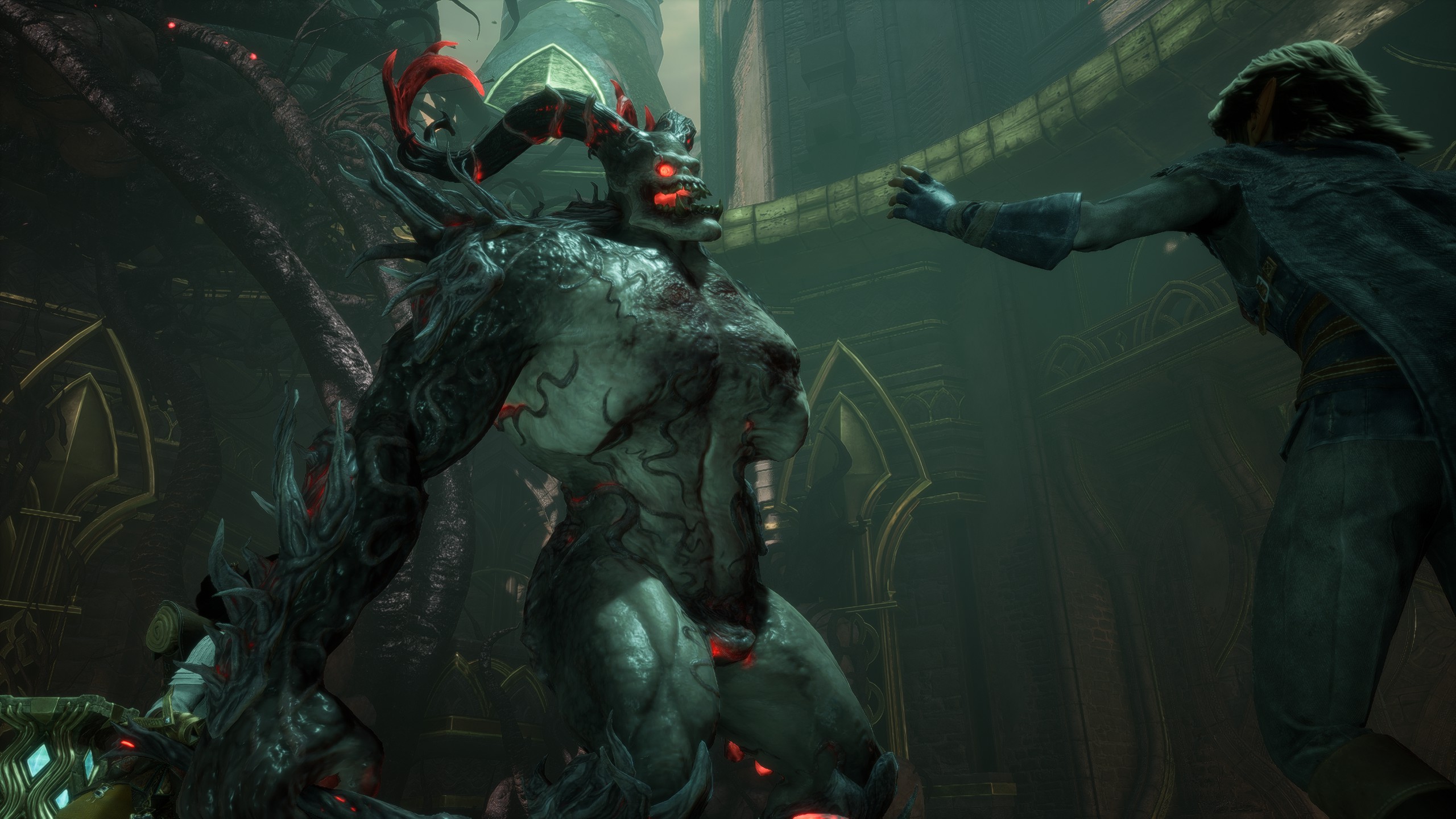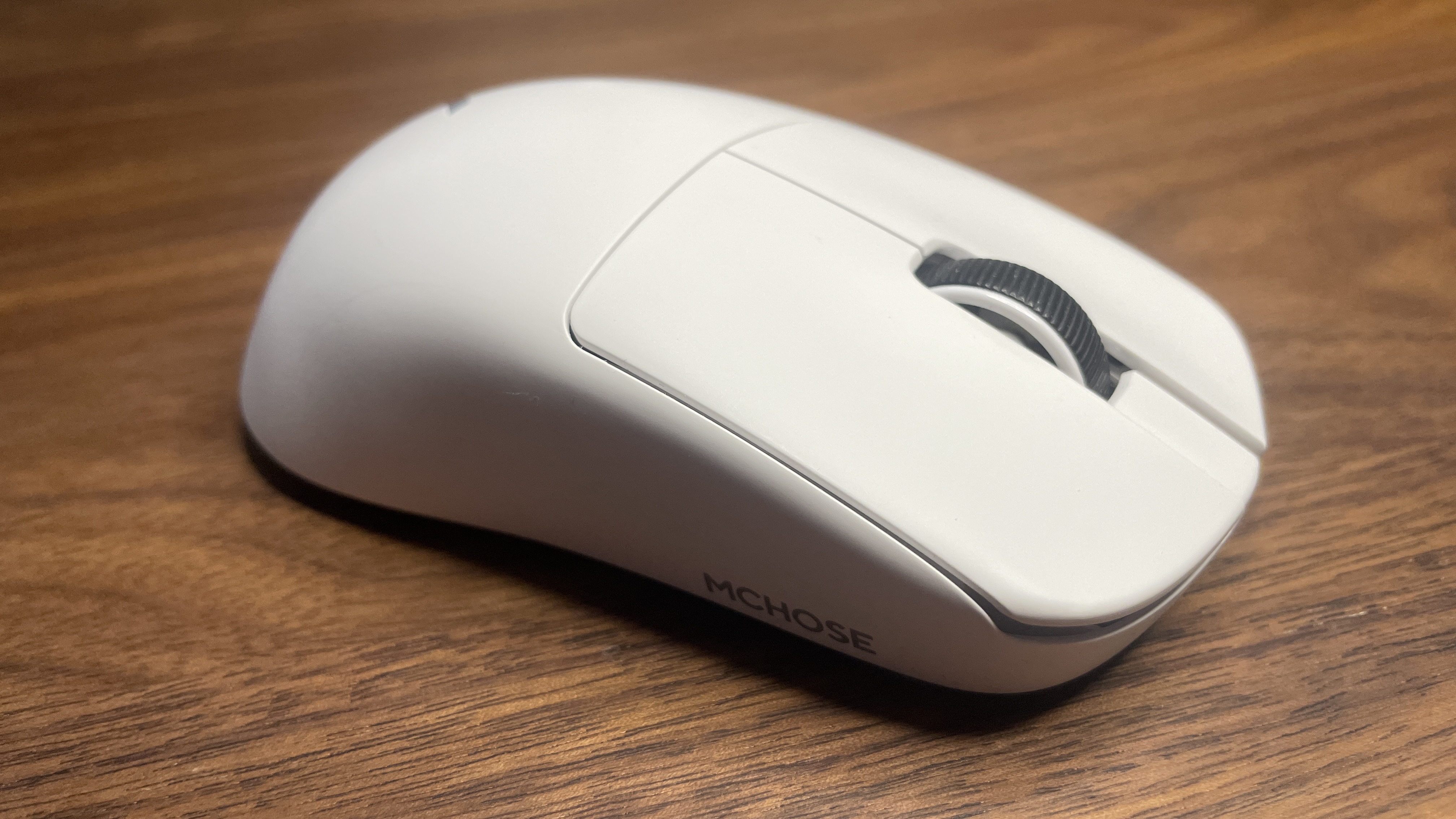Our Verdict
A genuinely enjoyable, gorgeous action-RPG that lacks the storytelling nuance of previous Dragon Age games.
PC Gamer's got your back
Dragon Age games have long faced the same problem as Dragon Age protagonists: the utter impossibility of pleasing everyone simultaneously. Arriving almost exactly a decade after Inquisition, with hopes and expectations as granular as demands for cameos from minor characters and RPG design preferences that go all the way back to 2009's Origins, Dragon Age: The Veilguard is trying to please a lot of people. Like a protagonist playing 'yes man' to every faction, Veilguard has ended up likable, but too broad in its appeal to love like I love clunkier Origins, endearingly messy Dragon Age 2, or overambitious Inquisition.
What is it? An action-RPG where your choices affect the plot.
Release date October 31, 2024
Expect to pay $60/£50
Developer BioWare
Publisher Electronic Arts
Reviewed on RTX 2080, Intel i7-8086k, 32GB RAM
Multiplayer No
Steam Deck Verified
Link Site
The first 10 hours of The Veilguard are disorienting, even for a certified Thedas lore dork. It opens with my hero Rook and series fan-favorite dwarven archer Varric Tethras arriving in the magical city Minrathous at the end of an apparently lengthy search to track down his Inquisition comrade turned elven god Solas. We stop Solas' world-ending ritual to tear down the barrier between the realm of magic and the rest of the world with a bit of action movie guff—knocking a bunch of giant statues over—after which I assumed we would all take a deep breath and get into the real adventure. Wrong.
Veilguard's entire first act carries on at the same breakneck pace, briskly nodding to my chosen backstory and then tossing me into the deep end of a plot to defeat the two elven gods who slipped their prisons when I disrupted Solas' ritual. For several hours I was yanked from magical forest to magical city to assassin city, recruiting seven staple RPG party members almost faster than I could read their resumes. By the time I'd hastily met with a third head of a major world faction and not had a single conversation that wasn't plot-critical in hours, I was beginning to worry that BioWare had forgotten to write any side quests.
Dragon Age Inquisition's much memed-upon first explorable area The Hinterlands was notorious for being overly large and so packed full of low-impact side quests that people stuck around way too long without moving on to other zones. The Veilguard's opening hours overcorrect on that, whipping me between locations so quickly that I struggled to get to know them, let alone any of those faction side characters.
The Veilguard does eventually slow down. It gave me a whole 70 hours of questing, companion bonding, and a lot of fun combat encounters. But EA has any number of studios who can make a fun action game. This is a BioWare game. And though it has the shape of one, with its lengthy companion journeys and a world-saving plot, it falls short of the compelling choices and consequences the series has achieved in the past.
A more focused world
The Veilguard finally catches its stride in the second act, tossing me a heap of side quests encouraging me to spend more time in each of its explorable zones and granting me enough time to appreciate all the things it genuinely does well.
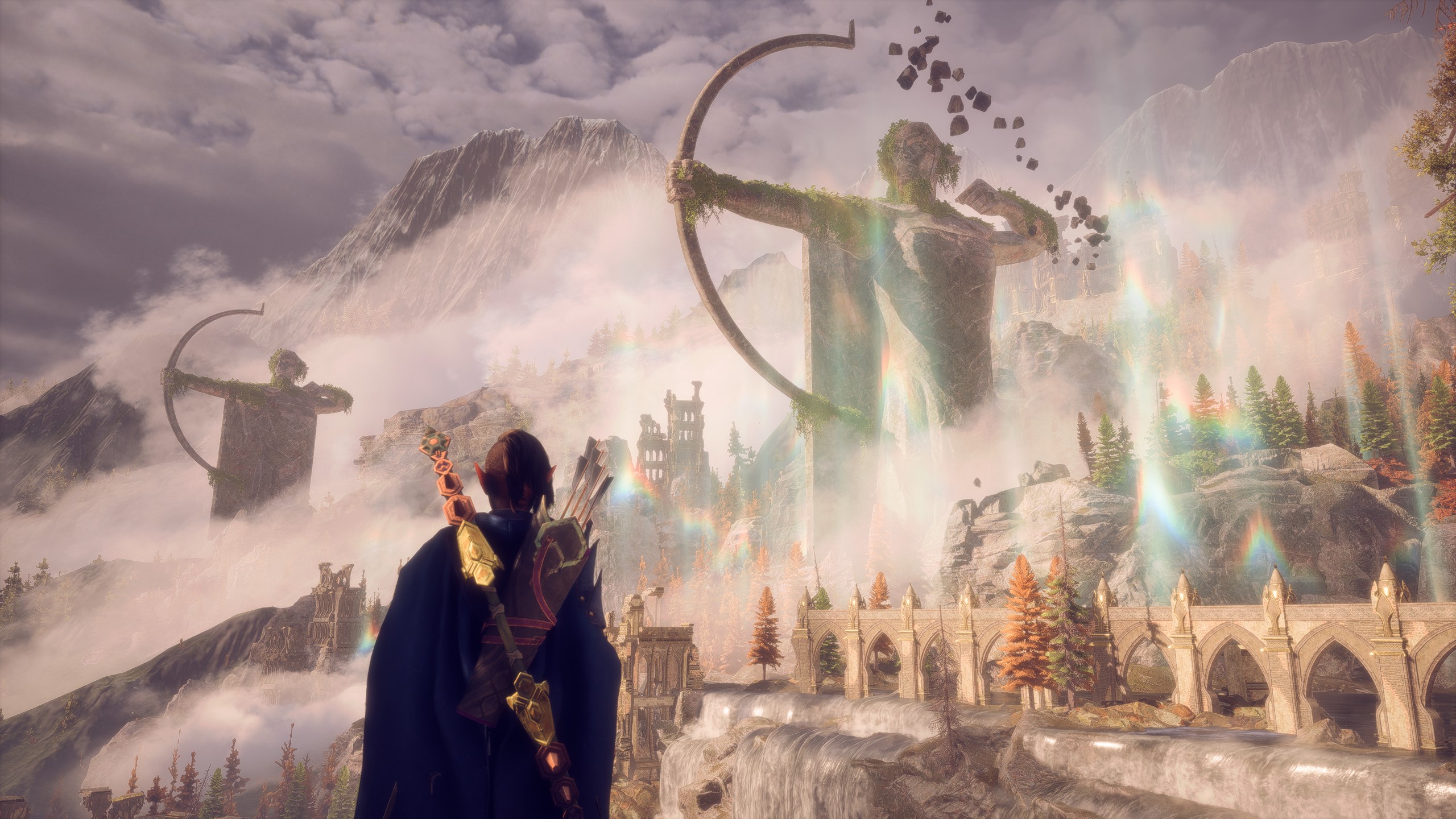
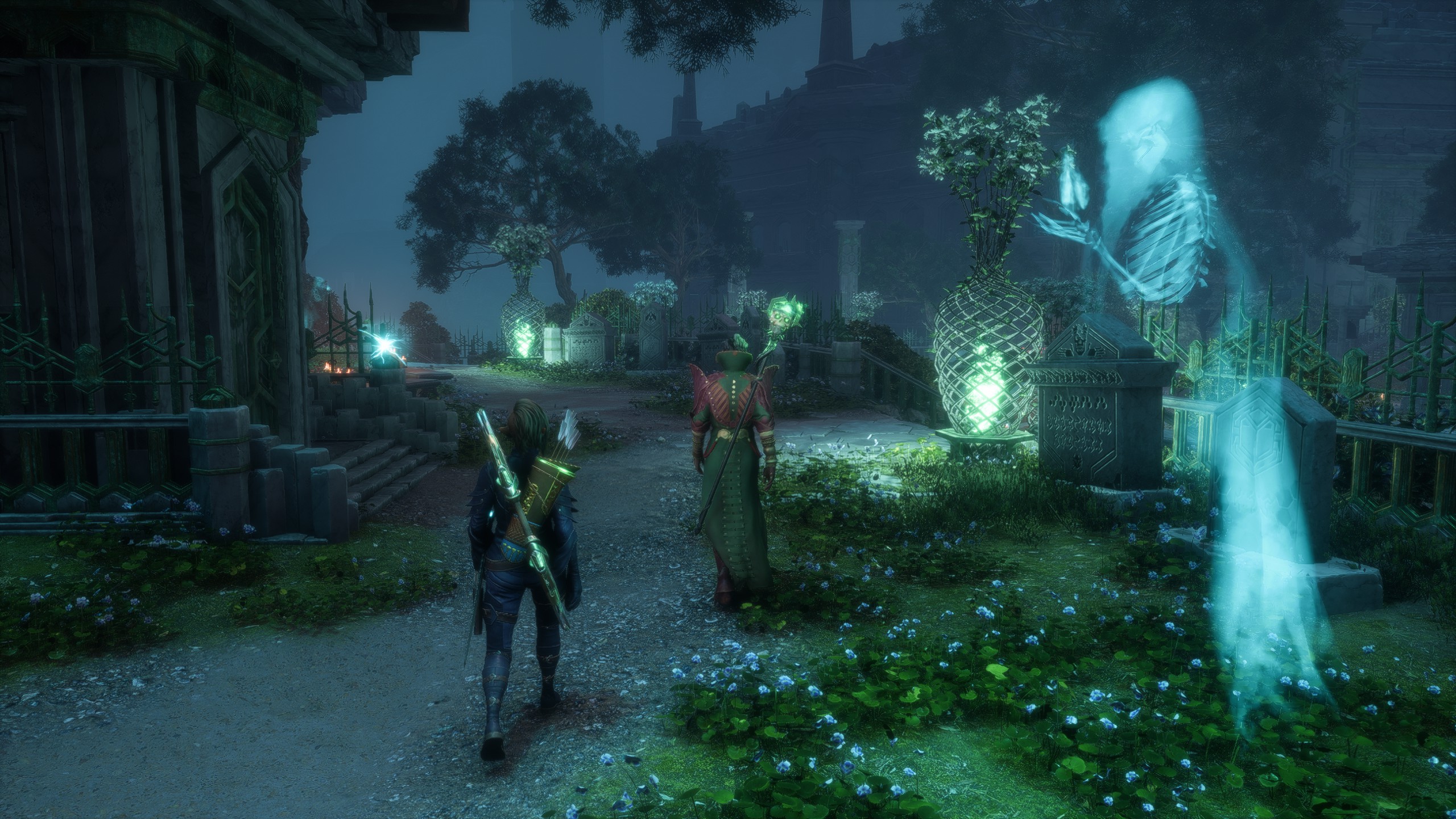
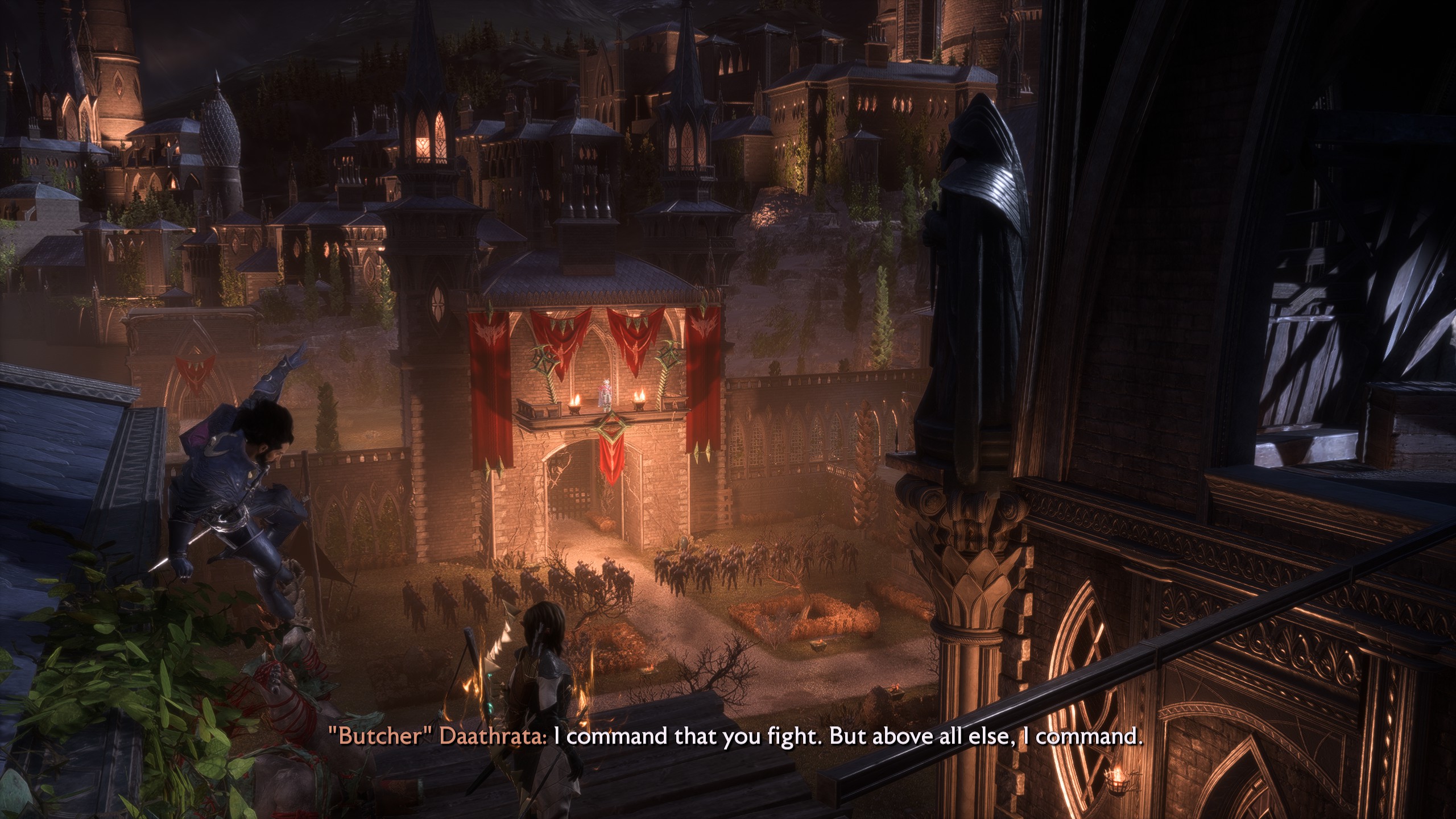
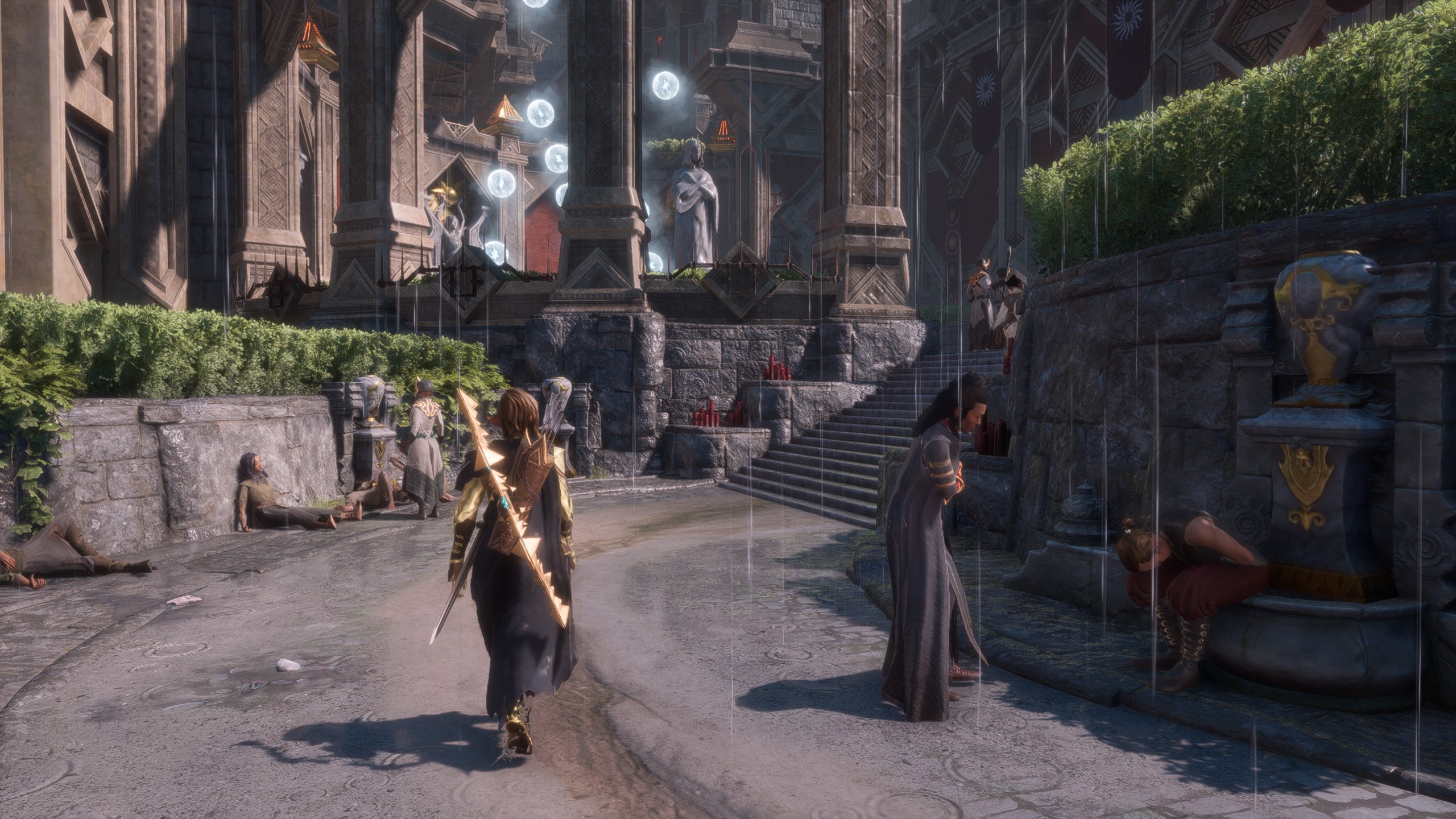
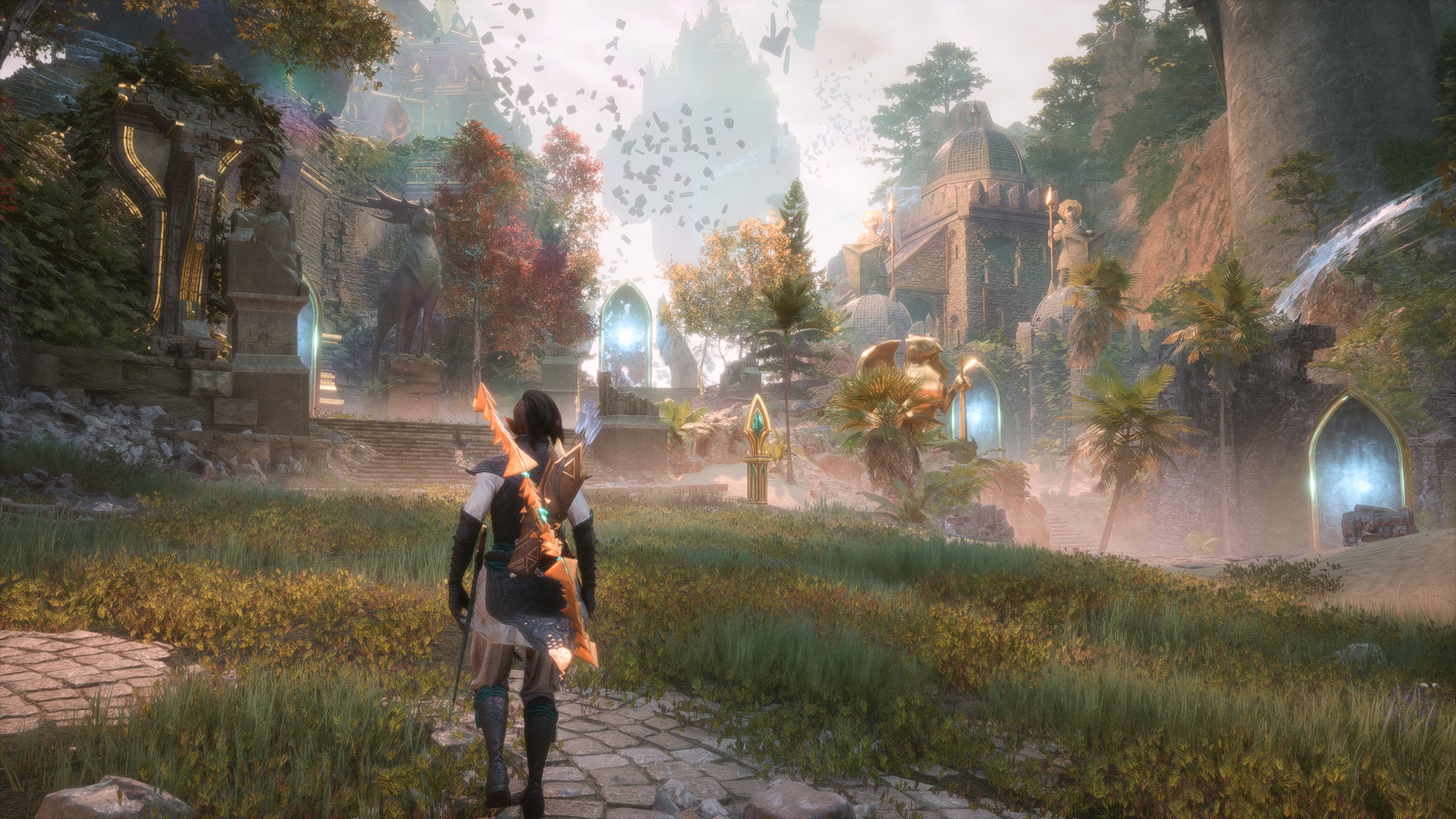
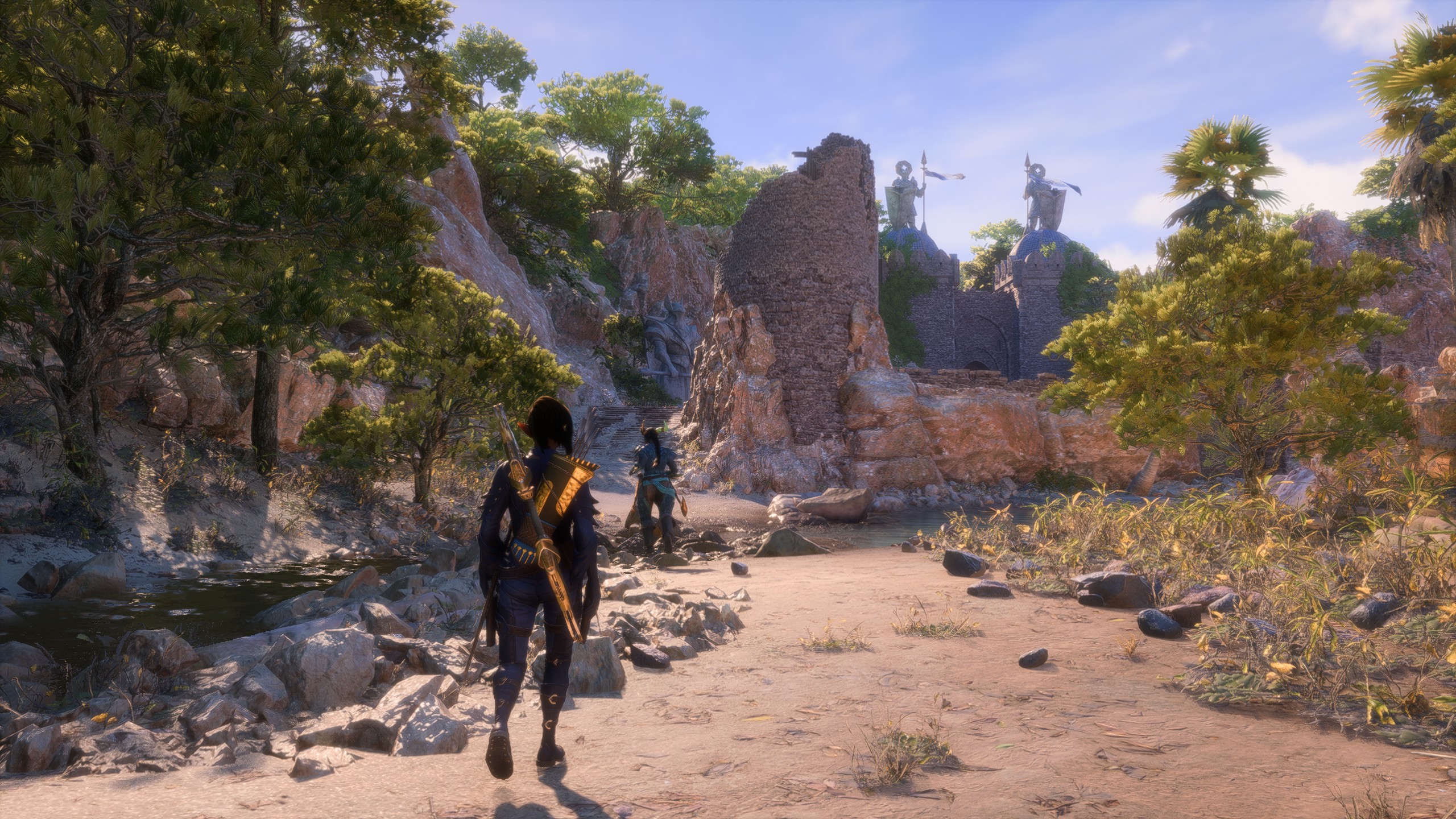
The incredible visual design of each area is one of Veilguard's best features. Though it's all distinctly colorful, well-lit, and high fantasy in tone in a way that Dragon Age: Origins curmudgeons like me may not care for, I can't deny that the vistas are gorgeous. I dove into a spooky underground garden in the Grand Necropolis, and a crystalline lost dwarven thaig. I fought in a giant ankle-deep bathhouse of blood, and saw majestic walls of waterfalls in Arlathan Forest. Its act-capping major battles have thrilling sequences of their own as I explore: massive magical displays in the sky and dragons smashing through my path. Not a single one is anything less than intricately detailed and beautiful. I've never missed an open world less.
Keep up to date with the most important stories and the best deals, as picked by the PC Gamer team.
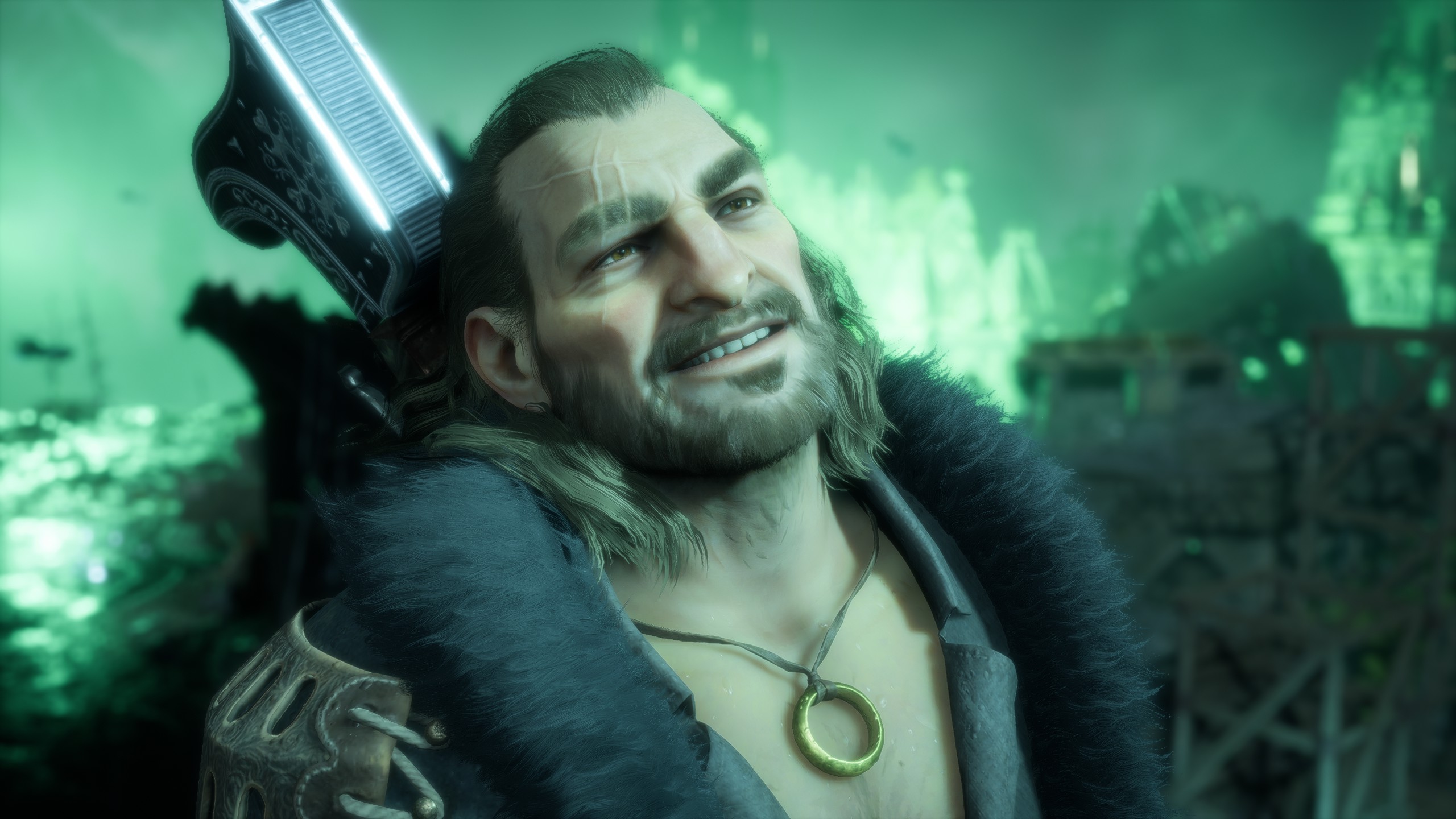
Read up on how you can expect different systems to play in our Dragon Age: The Veilguard performance analysis in which Nick Evanson finds decent frame rates and a glitch-free experience.
The Veilguard is undeniably better off for ditching Inquisition's giant zones and returning to more constrained maps of coiled corridors and clearings. Each area is packed with traversal puzzles that Rook's companions can help solve with their own unlocked skill. Neve the detective mage can break through magical barriers while Bellara the elven artifact researcher can fix contraptions like magical locks. Maps are littered with little challenges in my pursuit of explorable shortcuts, treasure chests of gear, and statues that grant me more health.
Every area is also densely packed with fights that I'm relieved to say are fast, snappy, and enjoyable, even though I'm a crunchy RPG loving freak who was disappointed when BioWare first showcased the action-heavy combat. As a rogue, I weave together light and heavy attacks, sometimes holding a button longer to charge an attack and build up the stagger meter on an enemy. I dodge, parry, and leap off ledges for plunging strikes and occasionally step back to take a headshot at an enemy mage with my bow. When I find my rhythm, I can even parry huge darkspawn ogres and then use my ultimate ability to scatter a cluster of bombs on the ground.
I still wish my party members weren't reduced to AI helpers with no health bars who I control only through a radial menu to fire off their skill combos. Truthfully though the pace of Veilguard's combat doesn't leave me much time for micromanagement and I'm genuinely having a great time flitting around the battlefield like a force of nature.
The Veilguard has eradicated most common RPG frictions.
There are a lot of other ways that The Veilguard has filed the rough edges off its RPG origins. There's effectively no inventory management, no carry weight limits, and no cost to respec my combat skills. Gear is all specifically tied to the character it's meant for and each duplicate of a piece I collect automatically upgrades the one I've got to a higher tier of rarity and stats. I literally can't miss recruiting a companion, and those traversal abilities they have can be used by Rook even when they aren't in the party, so I never miss out by bringing the wrong crew. The Veilguard has eradicated most common RPG frictions, and while I don't miss inventory juggling specifically, the sum total of all that streamlining is a game that can feel more action adventure than RPG at moments.
A packed party
The heart of a BioWare RPG has always been the cast of companions. The Veilguard comes armed both with fan favorite archetypes—the suave assassin and the heroic Grey Warden—and long-requested specifics like a romanceable dwarven character, returning Inquisition scout Lace Harding. Rook's companions are each a member of the major factions I'm courting to our god-slaying cause, bringing with them faction-specific sidequests and their own personal journeys too.
Davrin the Grey Warden wrestles with becoming the unwitting surrogate father to a baby griffon to prevent the species going extinct. Neve the detective mage can't call it quits on trying to make the oppressive city of Minrathous better from the ground up. They've all got their own problems and are just bursting at the seams to tell me about them. Maybe a little too eager to trauma dump, in some cases.
Personally I find Bellara's quirky engineer girl persona to be a grating cliche but was immediately drawn to Davrin. I'd expected as a duty-bound Grey Warden he'd be a blandly inoffensive good guy. He is a good guy, but he's also full of emotion: a little pride, frustration, occasional anger, and flirtation. His performance, by Ike Amadi, totally steals the show with that display of range. But adoring some characters and getting the ick from others (and debating those preferences with friends) has always been part of a BioWare RPG.
Veilguard does a great job of putting my little found family of veil avengers into each other's lives. They've often got banter dialogues while standing around together at The Lighthouse, not just while out exploring. They have a little developing grocery list where they make requests to Lucanis to buy dinner ingredients at the Treviso market. They're often in one another's conversations with me—Emmrich using his necromancy to help Lucanis get a lead for our next quest in his personal story, or Neve offering to pick up some mystery serial papers in Dock Town that Bellara likes to read.
The romances with each character have benefited from all that new visual fidelity, too—the hair, bless the gorgeous strand hair tech. Rook's face may still fall a little on the awkward side in conversation but my companions are all facially expressive in a way Dragon Age hasn't managed before. I was surprised though, when pursuing a romance with Lucanis, that those scenes were more tame and restrained than I expected based both on past games and the nudity toggle in the settings menu that must be good for something. I'm still not positive I didn't miss a scene with him somewhere despite a pretty completionist playthrough and winding up with him in the end. Where the romances do get explicit is in clarifying text with dialogue choices to make sure that you're definitely committing to who you mean to be, avoiding issues from past games like unintended romances or missed opportunities altogether.
Pulling back the veil
During character creation for The Veilgurd, I'm able to make four decisions about events of Dragon Age Inquisition to impact my world state. It's a real downsize from the dozens of decisions from past games that were nominally carried forward into Inquisition (with varying levels of acknowledgement). Although a lot of fans were dismayed by that revelation, I'm more worried about the decisions I make during Veilguard mattering within its own plot. And they do. But BioWare is so desperate to prove that to me at every moment that it won't stop talking over itself.
I'm often shown on-screen reminders mid-cutscene, telling me that my past choices are the reason for what's happening. "This character is injured because you let them go into danger" it reminds me as I'm speaking to said visibly injured character about said danger I remember from five minutes ago. It's as if BioWare is convinced that players have never heard of RPGs where their choices affect the plot, despite the last decade of very mainstream games—everything from the open world Assassin's Creed games to Baldur's Gate 3—mimicking or doing a lite version of the formula that BioWare popularized. The self-consciousness is frankly off-putting, like a friend incessantly asking for affirmation.
My companions don't have convictions that conflict with decisions I'm making as their leader and in fact put some of the biggest choices about their own personal journeys into my hands.
Outside of The Veliguard's moment-to-moment conversions with characters, they all start to suffer from the effect that I was worried Davrin would have. They're all largely just good people with inoffensive flaws like Bellara who blames herself for mistakes or Lucanis who can't control the demon that was forcibly put in him through no fault of his own. Nobody's a jerk (for long) or has concerning opinions about mages or anything. Good people don't make great characters. There apparently just isn't time for nuance when there are gods to fight, so every character either has an intensely personal journey with no wider ramifications or a revenge plot against an unquestionably evil person.
BioWare made a point of saying that The Veilguard would prioritize "characters, not causes," and while I understand the sentiment that it doesn't want characters to be walking mouthpieces for ideals, it flew wide of the mark by not letting its characters have feelings about anything more complicated than "the gods killing everyone is bad." They don't have convictions that conflict with decisions I'm making as their leader and in fact put some of the biggest choices about their own personal journeys into my hands. The causes that Dragon Age characters devote themselves to have always been a vital layer (on top of a compelling personality) that makes them complex and interesting people. Some of its most beloved characters have that status in no small part due to the causes that make them polarizing among fans. Look no further than Solas himself.
Those moral quandaries that BioWare is so well-known for are missing all the way down to the root. Veilguard has no dangerous mages versus dogmatic templars. It only has elven gods who want to destroy the world, faceless leagues of 'bad guy' factions and morally neutral 'good guy' factions willingly uniting against the common enemy.
My choices in The Veilguard have consequences, yes, but no complexity.
A past Dragon Age game would have posed us a tempting deal with a Venatori cult leader or questioned the morality of The Crows as Antiva's de facto military. It would have humanized our villains, compromised our allies, and made us question our values against their efforts to bend them. My choices in The Veilguard have consequences, yes, but no complexity. What we're left with is a fight against obviously evil ancient gods where the only attitude I really get to express on the subject is whether I believe the guy who wants to destroy the world to fix it is an asshole (he is) or a sexy sad boy (your taste may vary).
It's a shame to get through a Dragon Age game and find that its characters and story were its weakest element. In the end, The Veilguard brings to bear a gauntlet of great battles and a suite of spectacular cinematics to sell its final hours. But I think it's telling that the most emotionally effective moments all come from the returning cast of flawed heroes, not its own cast. The reveals and choices it goes out on could absolutely have destroyed me (a good thing) if only it had spent the rest of its time on characters and a plot that challenged me.
My biggest fear for The Veilguard was that it would be forgettable. It isn't. I've got a lot of critiques on how it compares to the series' history, but that's a better feeling than apathy. I've had my issues with every Dragon Age since Origins, from Dragon Age 2's repetitive environments and action combat pivot to Inquisition's underutilized open world. The Veilguard nails action combat and exploration and visual grandeur but in a series about defining a hero with morally ambiguous choices, the choices here are too easy to make. In time, The Veilguard will have its own hotly debated legacy within the series, but thank goodness it will at least have one.
A genuinely enjoyable, gorgeous action-RPG that lacks the storytelling nuance of previous Dragon Age games.

Lauren has been writing for PC Gamer since she went hunting for the cryptid Dark Souls fashion police in 2017. She joined the PCG staff in 2021, now serving as self-appointed chief cozy games and farmlife sim enjoyer. Her career originally began in game development and she remains fascinated by how games tick in the modding and speedrunning scenes. She likes long fantasy books, longer RPGs, can't stop playing co-op survival crafting games, and has spent a number of hours she refuses to count building houses in The Sims games for over 20 years.
